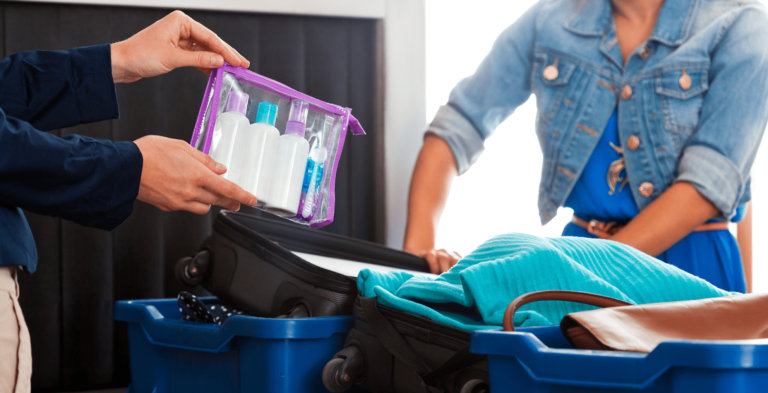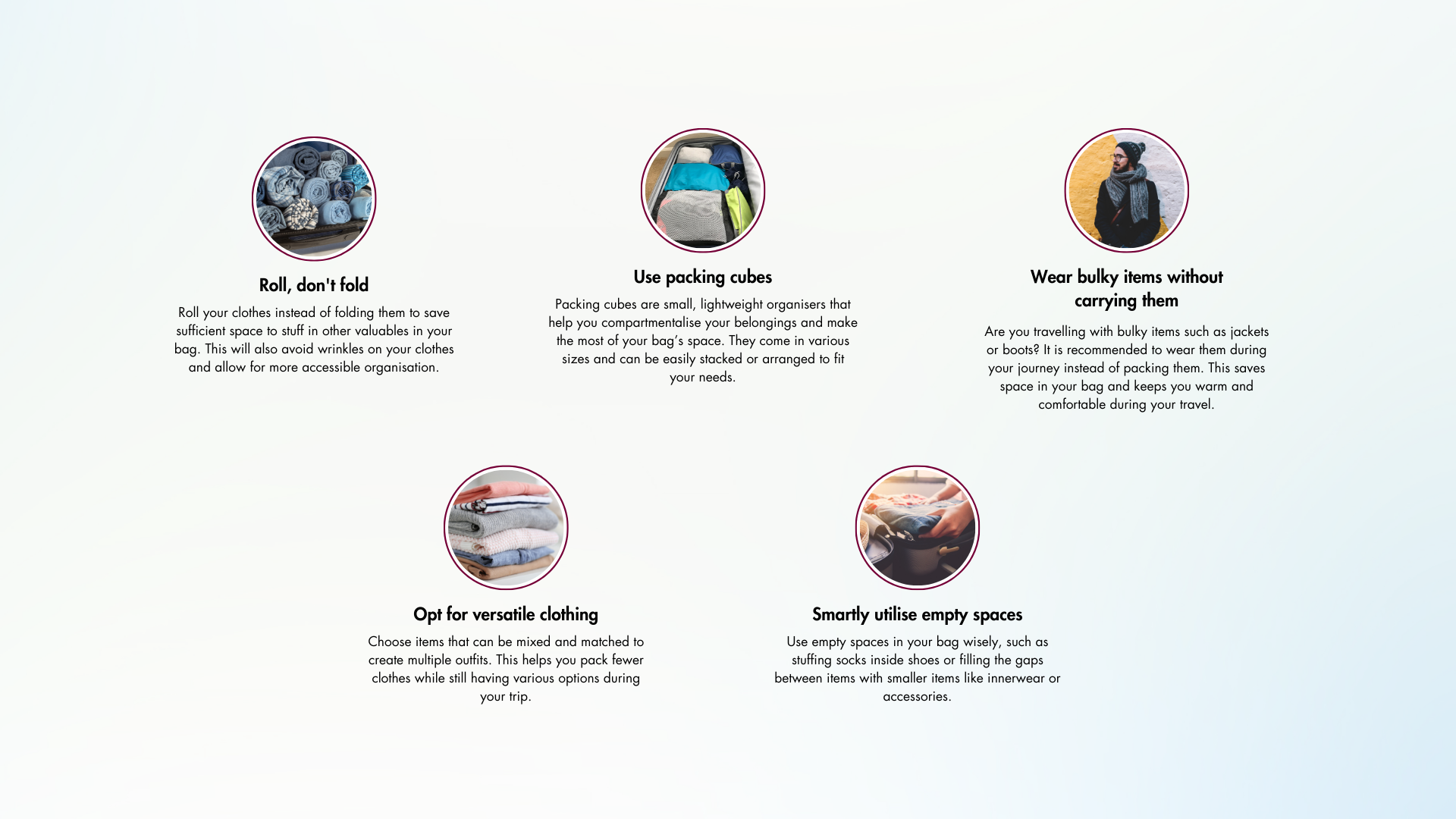Have an upcoming travel and are worried about baggage allowances? Look no further than our comprehensive baggage guidelines in Abu Dhabi**. Knowing your baggage limits and maximising your packing can make all the difference in stress-free travel. In this article, we’ll give you the lowdown on everything you need to know about baggage allowances, from restrictions and weight limits to tips and tricks for fitting everything in.
Don’t let baggage allowances cramp your style. Stay one step ahead, avoid extra fees, and pack like a pro with our ultimate guide.
Baggage services in Abu Dhabi can vary depending on the type of flight you are taking and the airline you’re flying with. Understanding the different kinds of baggage allowances is essential to avoid any surprises at the check-in counter.
Carry-on baggage refers to the bags you can bring into the aircraft’s cabin. These bags are typically smaller and must fit within specific dimensions to accommodate the overhead compartments or under the seat in front of you. Most airlines have exact weight and size restrictions for carry-on baggage, so it’s crucial to check these requirements before your trip.
Checked baggage refers to the bags stored in the aircraft’s cargo hold. These bags are typically larger and heavier than carry-on bags and are checked in at the airport’s check-in counter. Like carry-on baggage, checked baggage also has weight and size restrictions that vary by airline. It’s important to note that some airlines might charge additional fees for checked baggage, especially for excess weight or extra bags.
Understanding the different types of baggage guidelines in Abu Dhabi will help you plan your packing strategy accordingly. Now, let’s dive deeper into baggage allowances for international and domestic flights.
When it comes to international flights, baggage guidelines in Abu Dhabi can vary significantly between airlines and destinations. It’s crucial to familiarise yourself with the specific policies of the airline you’re flying with to avoid surprises.
Some airlines have a weight-based baggage allowance system, allowing you to check-in a certain total weight across all your checked bags. For example, you might be allowed to check-in up to 50 pounds (23 kilograms) for free, and any additional weight will incur extra fees.
Other airlines have a piece-based baggage allowance system, allowing you to check-in a certain number of bags. For example, you might be allowed to check-in two bags for free, with each bag weighing a maximum of 50 pounds (23 kilograms). Any additional bags or excess weight will incur additional fees.
It’s important to note that some airlines might have specific restrictions on the dimensions of each bag in addition to weight limits.
Baggage allowances for domestic flights are generally more straightforward compared to international flights. However, it’s still essential to check the specific policies of the airline you’re flying with, as they can vary.
Most domestic flights have a standard economy class baggage allowance, typically including one carry-on bag and one personal item, such as a laptop. The carry-on bag should fit within specific dimensions and weight limits, while the individual item should be smaller.
Some domestic flights might charge additional fees for checked bags, especially for excess weight or extra bags. It’s essential to check the airline’s policies regarding checked baggage fees.
Now that we’ve covered the basics of baggage allowances, let’s move on to some tips for maximising your packing so that you avoid paying extra.
Packing efficiently can save you space and money. Here are some tips to help you maximise your packing:
Roll your clothes instead of folding them to save sufficient space to stuff in other valuables in your bag. This will also avoid wrinkles on your clothes and allow for more accessible organisation.
Packing cubes are small, lightweight organisers that help you compartmentalise your belongings and make the most of your bag’s space. They come in various sizes and can be easily stacked or arranged to fit your needs.
Are you travelling with bulky items such as jackets or boots? It is recommended to wear them during your journey instead of packing them. This saves space in your bag and keeps you warm and comfortable during your travel.
Choose items that can be mixed and matched to create multiple outfits. This helps you pack fewer clothes while still having various options during your trip.
Use empty spaces in your bag wisely, such as stuffing socks inside shoes or filling the gaps between items with smaller items like innerwear or accessories.
In conclusion, understanding baggage allowance guidelines is crucial for stress-free travel. By familiarising yourself with the rules and regulations around baggage, you can avoid extra fees, delays, and frustrations at the airport.

